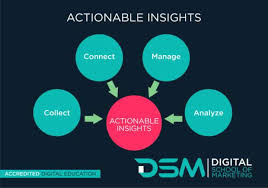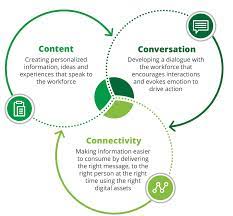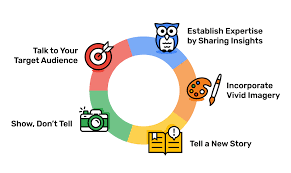Targeted Social Media Marketing: Reaching the Right Audience for Business Success
In today’s digital age, social media has become an integral part of our lives. With billions of active users across various platforms, it has emerged as a powerful tool for businesses to connect with their target audience. However, with such a vast user base, it can be challenging to stand out and reach the right people. This is where targeted social media marketing comes into play.
Targeted social media marketing involves tailoring your marketing efforts to specific demographics, interests, behaviours, and locations. By focusing on reaching the right audience, businesses can maximize their return on investment and achieve better results. Here are some key benefits of implementing targeted social media marketing strategies:
Relevance: By targeting specific demographics or interest groups, you can ensure that your content is relevant to your audience. This increases the chances of engagement and conversions because people are more likely to respond positively when they see content that resonates with them.
Cost-effectiveness: Targeted marketing allows you to allocate your resources more efficiently. Instead of spending money on reaching a broad audience that may not be interested in your products or services, you can concentrate your efforts on those who are more likely to convert into customers. This helps optimize your budget and generate higher returns.
Increased engagement: When you reach the right audience with tailored content, you have a higher chance of capturing their attention and sparking engagement. By understanding their preferences and interests, you can create compelling posts that encourage likes, comments, shares, and ultimately drive traffic to your website or physical store.
Improved conversion rates: Targeted social media marketing enables businesses to focus on individuals who are more likely to convert into paying customers. By identifying specific demographics or behaviours associated with higher conversion rates, you can refine your messaging and calls-to-action accordingly.
Better customer insights: Social media platforms provide valuable data about user behaviour, interests, and preferences. By leveraging these insights, you can gain a deeper understanding of your target audience. This knowledge can be used to refine your products or services, enhance your marketing strategies, and build stronger relationships with customers.
To implement targeted social media marketing effectively, consider the following tips:
Define your target audience: Clearly identify who your ideal customers are based on demographics, interests, behaviours, and other relevant factors.
Utilize platform targeting tools: Social media platforms offer robust targeting tools that allow you to narrow down your audience based on various criteria. Take advantage of these features to reach the right people.
Create tailored content: Develop content that speaks directly to your target audience’s needs and interests. Use language and visuals that resonate with them and align with their preferences.
Monitor and analyze results: Regularly track the performance of your campaigns and analyze the data provided by social media platforms. Adjust your strategies based on insights gained from this analysis to optimize future campaigns.
In conclusion, targeted social media marketing is a powerful approach that enables businesses to connect with their desired audience effectively. By focusing on reaching the right people with tailored content, businesses can increase engagement rates, improve conversion rates, and ultimately achieve better business outcomes. Embrace targeted social media marketing as part of your overall marketing strategy and unlock its potential for success in today’s digital landscape.
9 Essential Tips for Effective Targeted Social Media Marketing in the UK
- Get to know your audience
- Choose the right platform
- Establish a personality
- Use visuals
- Create great content
- Monitor activity
- Measure success
- Be responsive
- Stay up-to-date
Get to know your audience
One of the most crucial tips for successful targeted social media marketing is to get to know your audience. Understanding who your audience is, what they like, and what motivates them is essential for creating effective marketing campaigns that resonate with them.
To get started, take the time to research and analyze your existing customer base. Look at their demographics, such as age, gender, location, and interests. This information will help you create a profile of your ideal customer or target audience.
Next, dive deeper into understanding their needs and preferences. Engage with your audience on social media platforms by asking questions, conducting polls or surveys, and actively listening to their feedback. This will provide valuable insights into their pain points, desires, and expectations.
Additionally, leverage the analytics tools provided by social media platforms to gain further insights into your audience’s behaviour. Pay attention to engagement metrics such as likes, comments, shares, and click-through rates. This data will help you understand which types of content resonate most with your audience.
Once you have a clear understanding of your target audience, tailor your content accordingly. Create posts that address their specific needs or challenges while aligning with their interests and values. Use language and visuals that speak directly to them and evoke an emotional connection.
Remember that getting to know your audience is an ongoing process. As trends change and new technologies emerge, it’s important to stay updated on the latest developments in your industry and adapt your strategies accordingly.
By investing time in understanding your audience’s preferences and needs, you can create targeted social media marketing campaigns that effectively engage with them. Building strong connections with your target audience will not only increase brand loyalty but also drive conversions and contribute to long-term business success.
When it comes to targeted social media marketing, one crucial tip that should not be overlooked is choosing the right platform. With numerous social media platforms available, each catering to different demographics and interests, it’s essential to understand where your target audience spends their time online.
By selecting the appropriate platform for your business, you can maximize your reach and engagement with potential customers. Here are a few key considerations to help you make an informed decision:
Know your target audience:
To choose the right platform, you must have a clear understanding of your target audience. Consider their age range, interests, and preferred online activities. For example, if you’re targeting professionals in the B2B space, LinkedIn might be more suitable than platforms like Instagram or TikTok.
Research platform demographics:
Each social media platform has its own user base with distinct demographics. Take the time to research and analyze these demographics to identify which platforms align most closely with your target audience. Look at factors such as age range, gender distribution, location, and interests.
Consider platform features:
Different platforms offer unique features that can complement your marketing goals. For instance, Facebook provides robust targeting options and diverse ad formats suitable for various industries. Instagram focuses on visual content and is ideal for businesses in fashion, travel, or food industries.
Evaluate engagement levels:
Look into how engaged users are on each platform. Do they actively participate in discussions? Do they share content frequently? Assessing engagement levels can help determine which platforms will allow you to connect more effectively with your target audience.
Analyze competition:
Investigate where your competitors are active on social media. While it’s essential to differentiate yourself from competitors, observing their presence can provide valuable insights into which platforms are successful within your industry.
Remember that it’s not necessary to be present on every social media platform. It’s better to focus your efforts on a few platforms that align closely with your target audience and business objectives. This allows you to allocate your time, resources, and content creation efforts more effectively.
By choosing the right platform for your targeted social media marketing, you can connect with your audience in a meaningful way, increase brand awareness, and drive conversions. Take the time to research and understand your audience and the platforms available to make an informed decision that will yield the best results for your business.
Establish a personality
Establish a Personality: The Key to Engaging Targeted Social Media Marketing
In the world of social media marketing, establishing a strong and authentic personality for your brand is essential. Your brand’s personality is what sets you apart from competitors and helps you connect with your target audience on a deeper level. By infusing your social media presence with a distinct personality, you can create a more engaging and memorable experience for your followers.
When it comes to targeted social media marketing, having a well-defined brand personality is even more crucial. Here’s why:
Builds Trust and Authenticity:
A consistent and relatable personality helps build trust with your audience. When people feel like they know the face behind the brand, they are more likely to trust your messages and offerings. By showcasing authenticity through your social media posts, interactions, and content, you can establish credibility and foster long-term relationships with your target audience.
Creates Emotional Connections:
People are drawn to brands that evoke emotions. A well-crafted personality can help you connect with your audience on an emotional level. Whether it’s through humor, empathy, or inspiration, infusing your brand’s personality into your social media content allows you to resonate with your target audience’s values, interests, and aspirations.
Drives Engagement:
A strong brand personality encourages engagement from your followers. When people feel connected to a brand’s personality, they are more likely to like, comment on, and share its content. By consistently delivering content that aligns with your brand persona and sparks conversations, you can encourage active participation from your target audience.
Makes Your Brand Memorable:
In an overcrowded digital landscape, standing out is vital. A unique brand personality helps differentiate you from competitors and makes your brand more memorable in the minds of consumers. When people associate distinct traits or characteristics with your brand, they are more likely to remember you when making purchasing decisions.
To establish a compelling personality for your brand on social media, consider the following tips:
Define Your Brand Persona:
Identify the personality traits and characteristics that align with your brand values and resonate with your target audience. Are you playful and humorous? Sophisticated and professional? Authentic and relatable? Clearly define your brand persona to guide your content creation and interactions.
Be Consistent:
Consistency is key when it comes to establishing a brand personality. Ensure that your tone of voice, visuals, and overall messaging align with the personality you want to portray. Consistency helps build recognition and reinforces the emotional connection between your brand and its audience.
Engage in Conversations:
Don’t just broadcast messages; actively engage with your audience. Respond to comments, ask questions, and participate in discussions related to your industry or niche. This shows that there is a real person behind the brand who cares about their customers’ opinions and experiences.
Showcase Behind-the-Scenes Content:
Offer glimpses into the inner workings of your brand through behind-the-scenes content. This allows your audience to see the human side of your business, further strengthening the connection between them and your brand’s personality.
In conclusion, establishing a strong personality for your brand is vital in targeted social media marketing. By infusing authenticity, emotions, engagement, and memorability into your social media presence, you can create a meaningful connection with your target audience. So go ahead, let your brand’s personality shine through on social media platforms and watch as it helps you achieve greater success in reaching and engaging with the right audience.
Use visuals
Use Visuals: Engaging Your Audience through Eye-Catching Content
In the fast-paced world of social media, capturing your audience’s attention is crucial. With endless streams of content flooding their feeds, it can be challenging to stand out and make an impact. This is where the power of visuals comes into play in targeted social media marketing.
Visual content, such as images, videos, infographics, and animations, has the ability to convey messages quickly and effectively. It grabs attention and engages users in a way that text alone often cannot. Here’s why incorporating visuals into your targeted social media marketing strategy is essential:
Increased Engagement: Visuals have a higher chance of capturing your audience’s attention as they scroll through their feeds. Eye-catching images or captivating videos can stop them in their tracks and encourage them to engage with your content by liking, commenting, or sharing.
Improved Message Retention: Studies have shown that people remember visual information better than text. By using visuals to communicate key messages about your products or services, you increase the chances of your audience retaining that information and recalling it when needed.
Enhanced Brand Personality: Visual content allows you to showcase your brand’s personality and values more effectively. Whether it’s through vibrant images that evoke emotions or videos that tell compelling stories, visuals enable you to create a strong brand identity that resonates with your target audience.
Better Storytelling: Visuals provide an opportunity to tell stories visually. Through carefully crafted images or videos, you can take your audience on a journey that connects with their emotions and builds a deeper connection with your brand.
Increased Shareability: People are more likely to share visually appealing content with their own networks. By incorporating visuals into your social media posts, you increase the chances of organic reach as users share your content with their friends, family, or colleagues.
When using visuals in your targeted social media marketing strategy, keep the following tips in mind:
Be Consistent: Maintain a consistent visual style and tone that aligns with your brand. This helps create a cohesive and recognizable presence across different platforms.
Quality Matters: Ensure that the visuals you use are of high quality. Blurry or pixelated images can be a turn-off for your audience and may reflect poorly on your brand’s professionalism.
Keep it Relevant: Choose visuals that are relevant to your content and resonate with your target audience. They should enhance the message you’re trying to convey rather than distract from it.
Optimize for Different Platforms: Different social media platforms have specific requirements and display formats for visuals. Tailor your visual content to fit each platform’s specifications for optimal visibility and engagement.
Incorporating visuals into your targeted social media marketing strategy can significantly boost engagement, improve message retention, and enhance your brand’s personality. By creating visually appealing content that captures attention and tells compelling stories, you can effectively connect with your target audience and achieve better results in the dynamic world of social media marketing.
Create great content
Create Great Content: The Key to Successful Targeted Social Media Marketing
When it comes to targeted social media marketing, one crucial tip stands out above the rest: create great content. In a digital landscape saturated with information and competing brands, exceptional content has the power to captivate and engage your target audience like nothing else.
But what exactly does “great content” mean? It goes beyond just catchy headlines or eye-catching visuals. Great content is valuable, relevant, and tailored specifically to your target audience’s needs and interests. Here’s why it’s so important:
Attract Attention: Exceptional content has the ability to grab attention amidst the sea of social media posts. By creating unique and compelling content, you can stand out from the crowd and pique the curiosity of your target audience.
Build Trust: When you consistently provide high-quality content that educates, entertains, or solves a problem for your audience, you establish yourself as a trusted source of information in their eyes. This builds credibility and fosters trust in your brand.
Encourage Engagement: Engaging content sparks conversations and interactions with your audience. Whether it’s through likes, comments, shares, or direct messages, great content encourages active engagement and helps create a community around your brand.
Drive Traffic: Compelling content not only captures attention but also drives traffic to your website or other online platforms. By including relevant links in your posts or directing users towards further resources, you can guide them towards taking desired actions.
Inspire Action: Great content has the power to inspire action from your audience. Whether it’s making a purchase decision, signing up for a newsletter, or participating in a contest, well-crafted content can guide users towards specific actions that align with your business goals.
To create great targeted social media marketing content, consider the following tips:
Know Your Audience: Understand your target audience’s demographics, interests, and pain points. Tailor your content to address their specific needs and preferences.
Be Authentic: Develop a unique brand voice and be authentic in your communication. Showcasing your brand’s personality helps establish a genuine connection with your audience.
Provide Value: Create content that adds value to your audience’s lives. This can be through educational articles, entertaining videos, or insightful tips that help them solve problems or achieve their goals.
Use Visuals Effectively: Incorporate visually appealing elements such as images, infographics, or videos to enhance the impact of your content. Visuals can capture attention and convey information more effectively than text alone.
Stay Consistent: Consistency is key in maintaining engagement and building a loyal following. Regularly post high-quality content that aligns with your brand’s messaging and values.
Remember, creating great content is an ongoing process of experimentation, learning from feedback, and adapting to the changing needs of your target audience. By consistently delivering exceptional content tailored to their interests, you can establish a strong presence on social media and drive meaningful results for your business.
Monitor activity
Monitoring Activity: The Key to Successful Targeted Social Media Marketing
In the fast-paced world of social media, staying on top of your campaigns is crucial for achieving success. One essential tip for targeted social media marketing is to monitor activity closely. By keeping a watchful eye on your campaigns, you can gather valuable insights, make informed decisions, and optimize your strategies for better results.
Monitoring activity involves regularly checking the performance of your social media campaigns and analyzing the data provided by the platforms. Here’s why it’s so important:
Identifying what works: By monitoring activity, you can identify which posts, ads, or campaigns are resonating with your target audience. Look for patterns in engagement rates, such as likes, comments, shares, and click-throughs. This will help you understand what content is capturing attention and driving desired actions.
Spotting trends and opportunities: Social media trends can change rapidly. By monitoring activity, you can stay updated on the latest trends within your industry or among your target audience. This allows you to seize opportunities and create timely content that aligns with current interests.
Addressing issues promptly: Monitoring activity helps you spot any negative feedback or issues that may arise on social media platforms. By addressing these concerns promptly and professionally, you can maintain a positive brand image and ensure customer satisfaction.
Optimizing performance: Regularly analyzing data from your social media campaigns enables you to make data-driven decisions to improve performance. Identify areas where adjustments are needed—whether it’s targeting options, ad formats, posting times, or messaging—and optimize accordingly.
To effectively monitor activity in targeted social media marketing:
Set clear goals: Define specific objectives for each campaign so that you know what metrics to track and measure against those goals.
Use analytics tools: Social media platforms provide robust analytics tools that offer valuable insights into your campaigns’ performance. Utilize these tools to gather data and analyze key metrics.
Track engagement metrics: Monitor likes, comments, shares, click-through rates, and other engagement metrics to gauge how your content is resonating with your target audience.
Monitor sentiment: Pay attention to the sentiment of comments and mentions related to your brand. Are they positive, negative, or neutral? This will help you understand how your audience perceives your brand and make necessary adjustments if needed.
Stay informed: Keep up with industry news and social media trends. This will allow you to adapt your strategies and content to stay relevant and engaging.
In conclusion, monitoring activity is a vital aspect of targeted social media marketing. By closely tracking the performance of your campaigns, analyzing data, and making informed decisions based on insights gained, you can optimize your strategies for better results. Embrace this tip as part of your social media marketing approach and watch as it helps you achieve success in reaching and engaging with your target audience effectively.
Measure success
When it comes to targeted social media marketing, one crucial tip that should never be overlooked is the importance of measuring success. In the fast-paced world of social media, it’s not enough to simply implement marketing strategies and hope for the best. By measuring your success, you can gain valuable insights into what works and what doesn’t, allowing you to refine your approach and maximize your results.
Measuring success in targeted social media marketing involves tracking key performance indicators (KPIs) that align with your business objectives. These KPIs can include metrics such as engagement rates, click-through rates, conversion rates, reach, and follower growth. By monitoring these metrics, you can gauge the effectiveness of your campaigns and make data-driven decisions to optimize your future efforts.
One of the primary benefits of measuring success is that it provides a clear understanding of how well your targeted social media marketing strategies are performing. It allows you to identify which tactics are driving the most engagement or conversions, enabling you to focus on those areas that yield the best results. Conversely, it also helps pinpoint any weaknesses or areas for improvement that may be hindering your success.
Moreover, measuring success provides valuable insights into your target audience. By analyzing data on demographics, interests, or behaviours associated with higher engagement or conversion rates, you can refine your targeting strategies further. This knowledge allows you to tailor content and messaging more effectively to resonate with your audience’s preferences and interests.
Another advantage of measuring success is that it enables you to track return on investment (ROI). By understanding how much revenue or value each campaign generates relative to its cost, you can evaluate its profitability and make informed decisions about resource allocation in future campaigns.
To effectively measure success in targeted social media marketing:
- Establish clear goals: Define specific objectives for each campaign based on what you want to achieve (e.g., increase brand awareness or drive website traffic).
- Select relevant KPIs: Identify the metrics that align with your goals and track them consistently across campaigns.
- Utilize analytics tools: Take advantage of social media platform analytics, as well as third-party tools, to gather and analyze data on your campaign performance.
- Regularly review and analyze data: Monitor your KPIs regularly and assess trends, patterns, and areas for improvement. Use this information to refine your strategies and optimize future campaigns.
- Adjust your approach: Based on the insights gained from measuring success, make data-driven decisions to adapt your targeting strategies, content creation, or campaign tactics.
In conclusion, measuring success is a vital aspect of targeted social media marketing. By tracking relevant metrics and analyzing campaign performance, you can gain valuable insights into what works best for reaching and engaging your target audience. This knowledge allows you to refine your strategies, optimize resource allocation, and ultimately achieve better results in the dynamic world of social media marketing.
Be responsive
Be Responsive: The Key to Successful Targeted Social Media Marketing
When it comes to targeted social media marketing, one crucial tip that businesses should never overlook is being responsive. In today’s fast-paced digital world, consumers expect quick and meaningful interactions with brands on social media platforms. By being responsive, businesses can build trust, enhance their reputation, and drive better results.
Being responsive means promptly acknowledging and addressing customer inquiries, comments, or concerns on social media. Here’s why it’s essential:
Customer Satisfaction: When customers reach out to a brand on social media, they are seeking a response. By promptly replying to their queries or comments, you show that you value their input and care about their satisfaction. This can lead to increased customer loyalty and positive word-of-mouth recommendations.
Brand Reputation: Social media provides a public platform where customers can share their experiences with your brand. By being responsive and providing helpful solutions or answers, you not only resolve issues but also demonstrate your commitment to customer service. This enhances your brand reputation and fosters positive perceptions among both existing and potential customers.
Increased Engagement: When you respond to customer interactions on social media, it encourages further engagement. Other users who see your responsiveness are more likely to engage with your content or reach out themselves. This can lead to increased visibility, reach, and ultimately more opportunities for conversions.
Crisis Management: In the event of negative feedback or a crisis situation on social media, being responsive is crucial. By addressing concerns promptly and transparently, you can mitigate potential damage to your brand’s image. It shows that you are actively listening and taking steps to resolve issues rather than ignoring them.
To ensure effective responsiveness in targeted social media marketing:
Monitor Social Media Channels: Regularly monitor your social media channels for any incoming messages or comments. Utilize social media management tools to streamline this process and ensure no messages slip through the cracks.
Set Response Time Goals: Establish response time goals for different types of inquiries or comments. Aim to reply within a reasonable timeframe, ideally within a few hours or less. This demonstrates your commitment to providing timely assistance.
Personalize Responses: Tailor your responses to each customer’s specific query or concern. Use their name and address their issue directly. This personalized approach shows that you genuinely care about their needs and are not simply providing generic replies.
Stay Professional and Positive: Maintain a professional tone in all interactions, even in challenging situations. Respond with empathy, understanding, and a positive attitude. This helps diffuse tensions and showcases your commitment to excellent customer service.
In summary, being responsive is a vital aspect of targeted social media marketing. By promptly acknowledging and addressing customer interactions on social media platforms, businesses can enhance customer satisfaction, build a positive brand reputation, increase engagement, and effectively manage any potential crises. Embrace responsiveness as an integral part of your social media strategy and watch it positively impact your business’s success in the digital landscape.
Stay up-to-date
In the fast-paced world of social media, staying up-to-date is crucial for successful targeted marketing. As platforms evolve, algorithms change, and new trends emerge, it’s essential to stay informed and adapt your strategies accordingly.
One key reason to stay up-to-date is to leverage the latest features and tools offered by social media platforms. Platforms like Facebook, Instagram, Twitter, and LinkedIn are constantly introducing new features that can enhance your targeting capabilities. By staying informed about these updates, you can take advantage of advanced targeting options, such as custom audiences or lookalike audiences, to reach your ideal customers more effectively.
Moreover, staying up-to-date with industry trends allows you to keep a finger on the pulse of what’s resonating with your target audience. Social media is dynamic, and what worked yesterday may not work today. By monitoring trends and understanding what content performs well within your niche or industry, you can adjust your strategy and create more engaging content that captures attention.
Another benefit of staying up-to-date is keeping an eye on changes in user behaviour and preferences. Social media users are constantly evolving in how they consume content and interact with brands. By staying informed about these shifts, you can tailor your messaging and approach to meet their changing needs. For example, if video content becomes increasingly popular among your target audience, you can focus on creating more video-based campaigns to better engage them.
Staying up-to-date also helps you avoid potential pitfalls or missteps in your marketing efforts. Social media platforms often update their policies or guidelines for advertising and content creation. By being aware of these changes, you can ensure that your campaigns comply with the latest rules and regulations. This prevents any negative consequences such as ad disapproval or account suspension.
To stay up-to-date effectively:
- Follow industry blogs or websites that provide insights into social media marketing trends.
- Engage in online communities or forums where professionals discuss current strategies.
- Attend webinars or conferences focused on social media marketing.
- Follow social media influencers or thought leaders in your industry who share valuable updates.
- Regularly review platform updates and guidelines provided by the social media platforms themselves.
In conclusion, staying up-to-date is vital for successful targeted social media marketing. By being aware of the latest platform features, industry trends, and changes in user behaviour, you can adapt your strategies to effectively reach and engage your target audience. Embrace a proactive approach to learning and evolving with the ever-changing landscape of social media to achieve optimal results in your marketing efforts.










